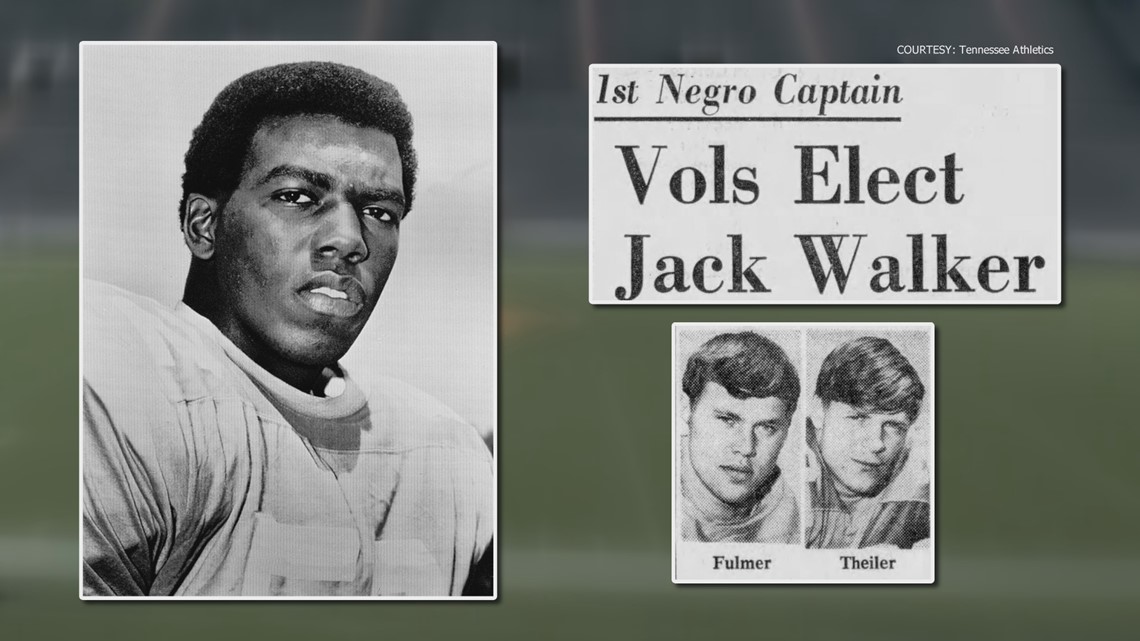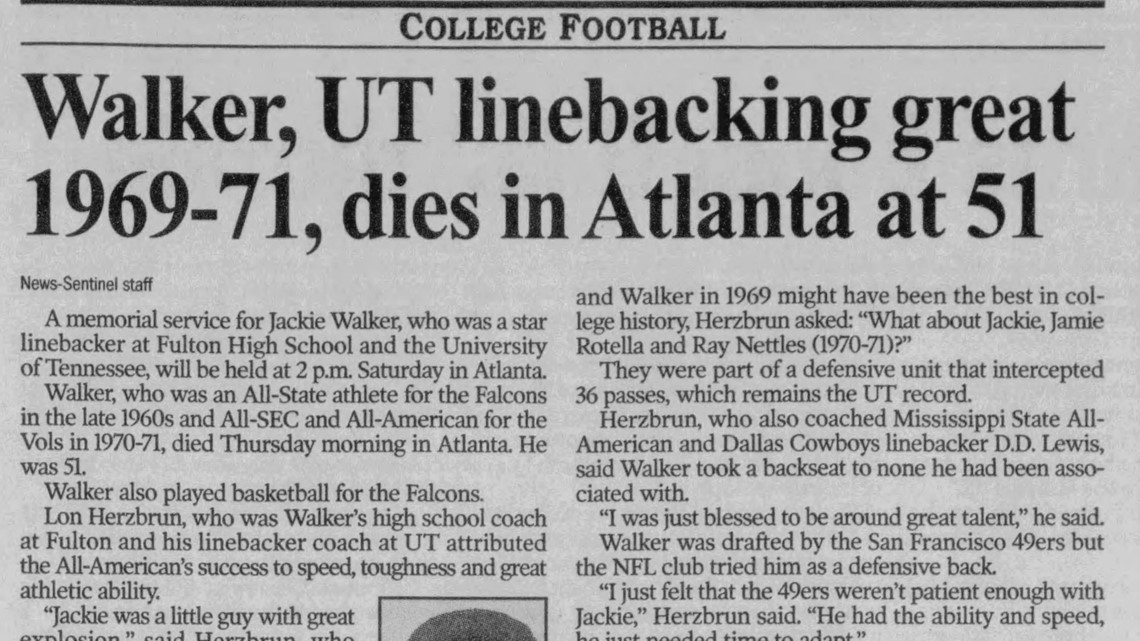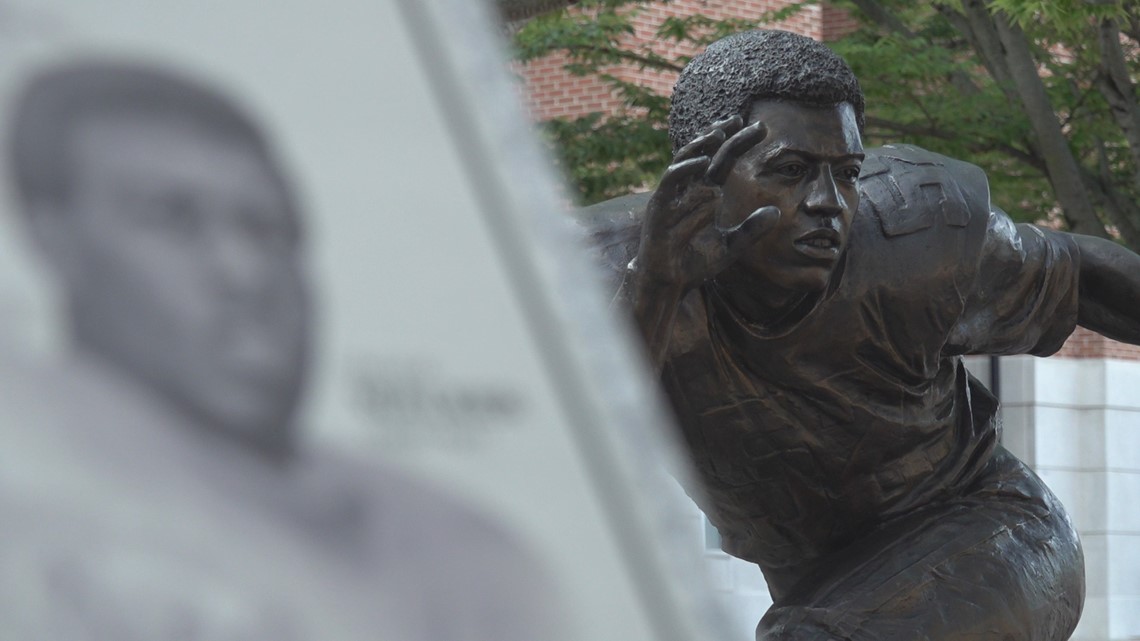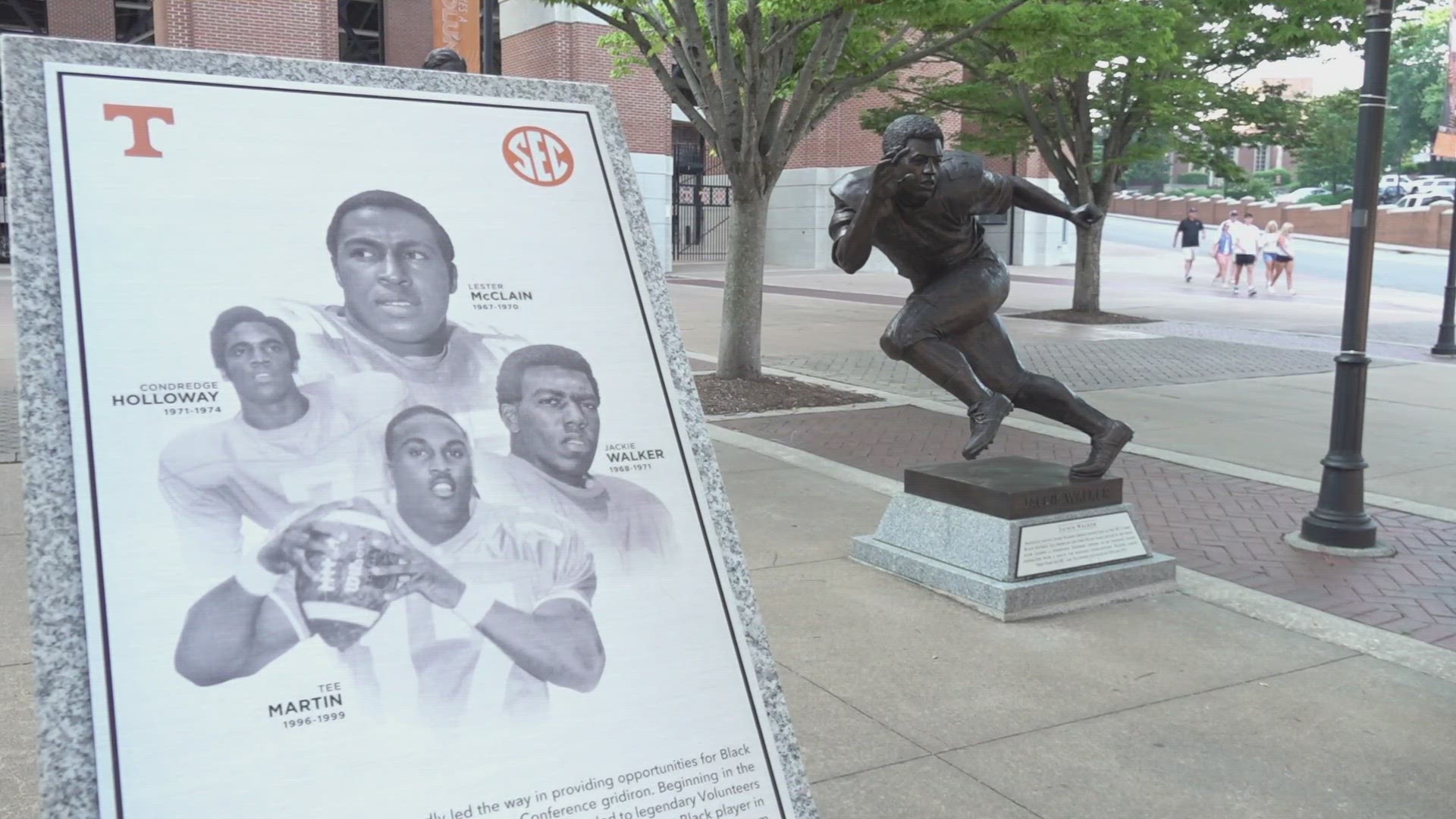KNOXVILLE, Tenn. — VFL and Knoxville native Jackie Walker is forever immortalized with a statue outside of Neyland Stadium. An honor that, for a long time, seemed impossible.
Walker began his football career at Fulton High School as a linebacker where he gained a reputation as a powerhouse on the field. He then took his on-field talents down the road to play for the University of Tennessee.
Walker was one of the very first African American players to don the orange and white, a fact that did not sit well with some players who wore the same colors.
“Within the team, there were factions of people that were adamantly opposed to him being there,” said former Vol Tim Priest.
Not only did Jackie battle against the team, but he battled against the fans as well.
“Now fans were screaming the n-word. They’re screaming the n-word,” Priest said.
Walker let his skills on the gridiron speak for him and by his junior year at UT, he was voted as the first Black All-American in Southeastern Conference history. By his senior year, he had won over his teammates, and they voted him captain of the team, besting fellow Vol Phillip Fulmer in the process.


“I consider it an honor to be a leader on the team. It’s a tough job and I’m happy that I’m able to get a chance to fulfill it,” Walker said.
Regardless of his success on the field, finding acceptance off the field was a struggle for Jackie. During his senior year rumors began to swirl about Walker’s sexuality, and after a breakup with his girlfriend, the truth came to light.
“He said, ‘Melanie didn’t handle it well.’ I said, ‘Didn’t handle what?’ and that’s when he told me that he told her that he was gay," said Marshall Walker, Jackie's brother.
While Walker never publicly came out as gay during his time at UT, after his final season, his teammates and coaches knew.
During his tenure at UT, Jackie helped lead the Vols to an SEC Championship in 1969 as well as a 1971 Liberty Bowl Victory. He shares the NCAA record for most interceptions returned for a touchdown with five.
He was drafted by the San Francisco 49ers deep into 6th round in the 1972 NFL draft but was dropped before the season began. Daw-U Smith, a friend of Jackie's, said Jackie told him he was cut because the organization discovered his sexuality. This claim was never substantiated.
Walker gave up his football dreams and moved to Atlanta in 1974 where he worked for the city. In 1998, he was diagnosed with HIV and died of aids on December 5, 2002.


With all his accolades on the field, Jackie’s brother Marshall figured he would be a shoo-in for hall of fames, and made it his mission to have his brother enshrined.
By 2008, Jackie Walker had still not received any accolades for his time on the turf.
“I’m presuming because of his sexual preference, that’s the reason,” Marshall said.
Marshall stayed the course and in July of that year, Jackie Walker finally got the recognition he deserved when he was inducted in the Greater Knoxville Sports Hall of Fame.
“Jackie is as deserving to be in this hall of fame as anyone that’s ever been inducted,” Priest said.
In 2011, Jackie Walker was also inducted into Tennessee Sports Hall of Fame, and in 2021, a ceremony at Neyland Stadium was held to honor the Tennessee Volunteer’s African American pioneers. Four statues were unveiled, and among them was Jackie Walker.
Today, the statue stands outside of gate 21 overlooking the field that Jackie once called home.



